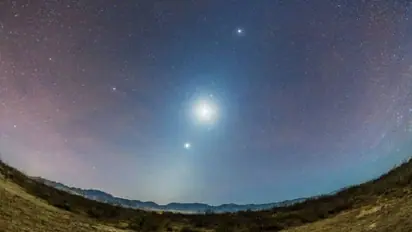NASA postpones Moon landing to 2025; All about it

Synopsis
In announcing the delay, NASA Administrator Bill Nelson stated that Congress did not grant enough funding to construct a landing technology for the Artemis moon programme, and that additional funding is required for the Orion capsule.
NASA postponed placing humans back on the moon until at least 2025, missing the Trump administration's target. The space agency had set a goal of 2024 for the first human lunar landing in a half-century. In announcing the delay, NASA Administrator Bill Nelson stated that Congress did not grant enough funding to construct a landing technology for the Artemis moon programme, and that additional funding is required for the Orion capsule. Furthermore, a court challenge by Jeff Bezos' rocket business, Blue Origin, halted progress on Elon Musk's SpaceX's Starship lunar landing device for months.
Before humans can return to the moon, officials say new spacesuit technologies must be developed. NASA is still planning for the Space Launch System's maiden test flight with an Orion spacecraft in February of next year. Instead, astronauts will board the second Artemis voyage, which will take them beyond the moon but will not arrive until 2024, a year later than anticipated. According to Nelson, this would push the lunar landing back until at least 2025.
Also Read | NASA’s SpaceX astronauts successfully splashdown on earth, ending 200-day flight
Nelson mentioned China's ambitious and aggressive space programme, warning that it may surpass the US in lunar exploration. NASA's latest lunar landing by astronauts occurred in 1972 during Apollo 17. A total of 12 persons explored the lunar surface. During a meeting of the National Space Council in 2019, Vice President Mike Pence pushed astronauts to reach the moon "by any means necessary" within the next five years. NASA had been aiming for a lunar landing in 2028, and moving it earlier by four years was deemed highly ambitious, if not impossible, at the time.
According to Nelson, Congress will need to raise financing for NASA beginning with the 2023 budget to enable private businesses to compete for the expected ten or more lunar landings by astronauts. The space agency is also demanding a $9.3 billion increase in the budget for its Orion capsules, citing delays caused by the coronavirus outbreak and storm damage. The cost of developing the rocket through the maiden Artemis mission next year is estimated to be $11 billion.
Also Read | New asteroid named 'T4660 Nereus', size of Eiffel Tower, heading for Earth in December